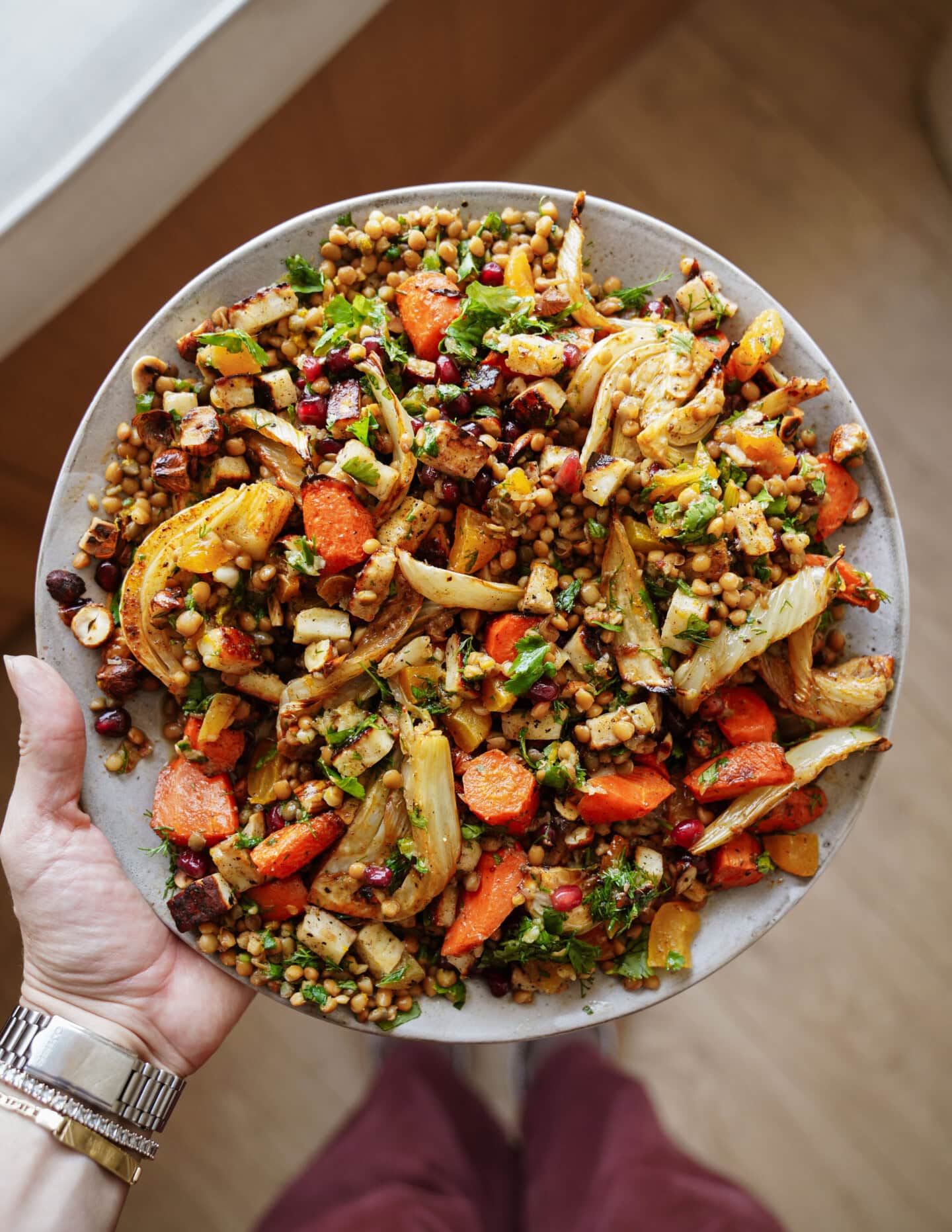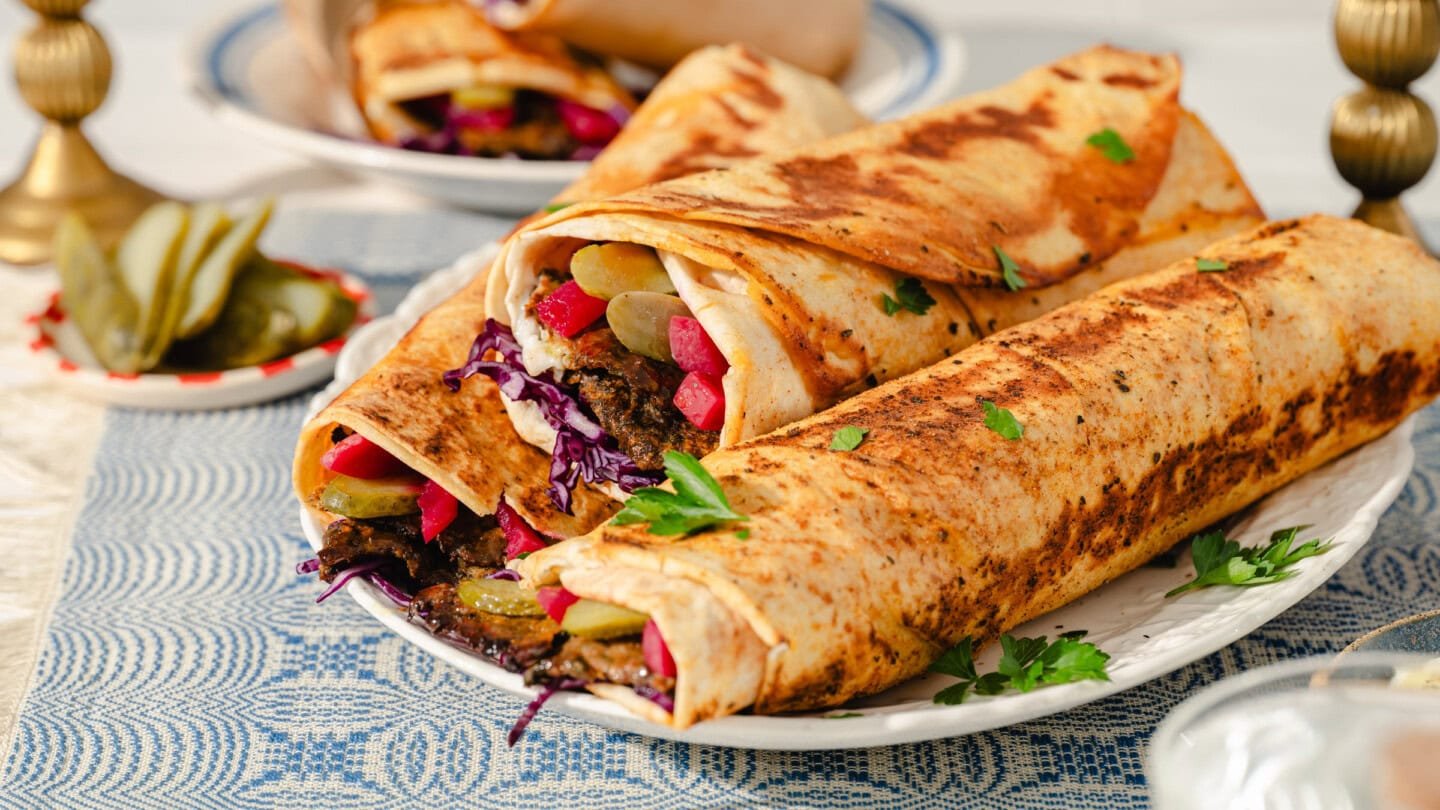Ultimate Guide
The Ultimate Guide to the Mediterranean Diet

The Mediterranean Diet is more than just a way of eating, it’s a lifestyle inspired by the traditional cuisines of countries bordering the Mediterranean Sea, such as Greece, Italy, Spain, and Morocco. A Mediterranean Diet isn’t a fad diet but a lifestyle that these countries have adopted that you can incorporate into your lifestyle too. It emphasizes fruits, veggies, whole grains, legumes, and nuts. Meat is eaten in moderation, and food is not processed. The Mediterranean Diet has many health benefits, and I’m going to dive into some of those in this guide, plus share some of my favorite Mediterranean recipes.

What is a Mediterranean Diet?
The Mediterranean Diet is a way of eating that focuses on fruits, veggies, whole grains, legumes, and nuts, with olive oil as the primary source of added fat. All of these foods are abundant in these regions. This diet eats fish and poultry in moderation, and only seldom enjoys red meats, sweets, and processed foods. This diet, paired with physical activity and the emphasis on social, family-centric meals, is linked to various health benefits, including heart health and longevity. There is a reason why these countries are home to some of the oldest people in the world.

The Health Benefits of a Mediterranean Diet
This diet and lifestyle have a wide array of benefits, especially when it comes to your heart health. The dietary pattern that consists of consuming a lot of veggies, fruits, grains, legumes, olive oil, etc., is rich in antioxidants and healthy fats. This helps contribute to lower blood pressure, better cholesterol levels, and reduced inflammation.
The Mediterranean Diet is also linked to increased longevity and a reduced risk of chronic diseases. The emphasis on whole, unprocessed foods, lean protein, and limited intake of things like red meat or sugary desserts helps contribute to weight management and a lower risk of developing things like type 2 diabetes. This is only a small list of some of the fantastic benefits of following this lifestyle.
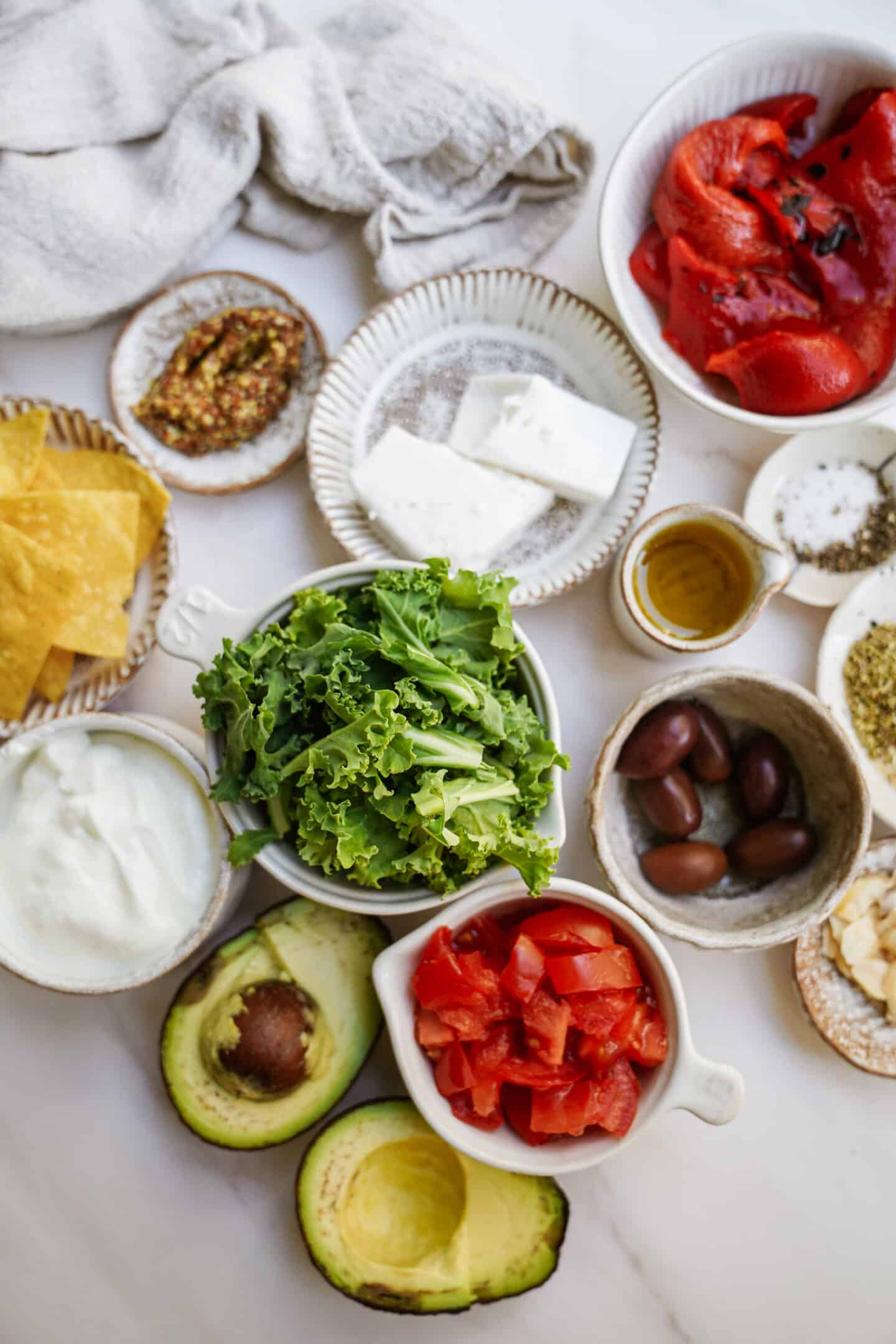
How to Start Following a Mediterranean Diet
If you want to start eating a diet like this, there are a few key things you can do to change and shift your lifestyle. However, there are, of course, no strict rules. Again, this is a lifestyle, not a fad diet that you’re going to do for a week and give up on. Begin gradually by incorporating more of these key ingredients into your daily meal prep:
- Fruits
- Veggies
- Whole Grains (quinoa, barley, bulgar, etc.)
- Legumes (lentils, beans, etc.)
- Olive oil or avocado oil (for a healthy fat)
Cut back on things like red meat and processed foods. Instead, opt for protein like fish or poultry a couple of times a week only. With this shift, you want to focus on plant-based foods. Use herbs and spices to add flavors (instead of too much salt). Enjoy nuts and seeds as snacks, and opt for olive oil as your cooking fat vs. vegetable oil or other cooking oils.
On top of what you’re eating, you’ll want to make a shift in your everyday life outside of the kitchen. Try to incorporate more movement. Here are some easy changes you can make:
- Walk to run errands, or park further away to get more steps in
- Take the stairs instead of the escalator or elevator
- Find a form of fitness you enjoy (eg. the gym, fitness classes, yoga, etc.)
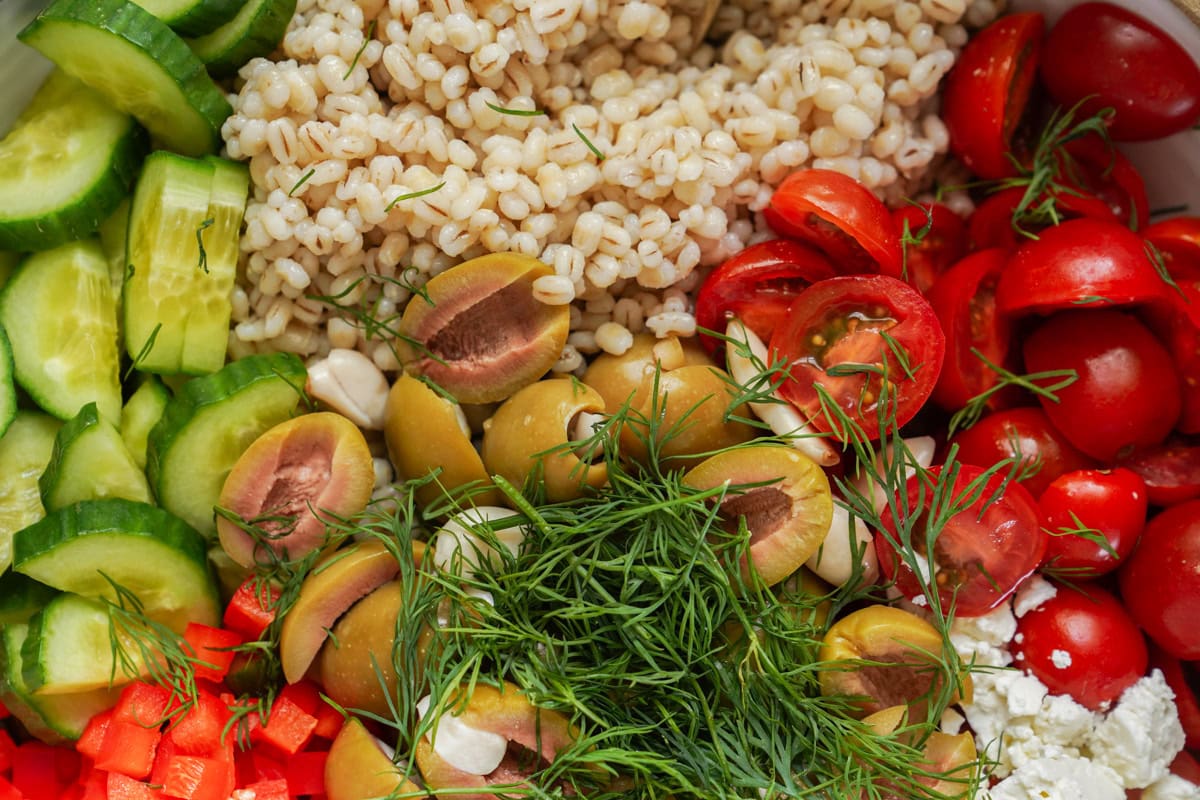
Mediterranean Recipes to Try
There are so many delicious Mediterranean-inspired recipes out there that you can make, and below are just a few of the recipes that you’ll find on my website. These recipes are veggie-forward and packed with flavor. They’re also so easy to make!
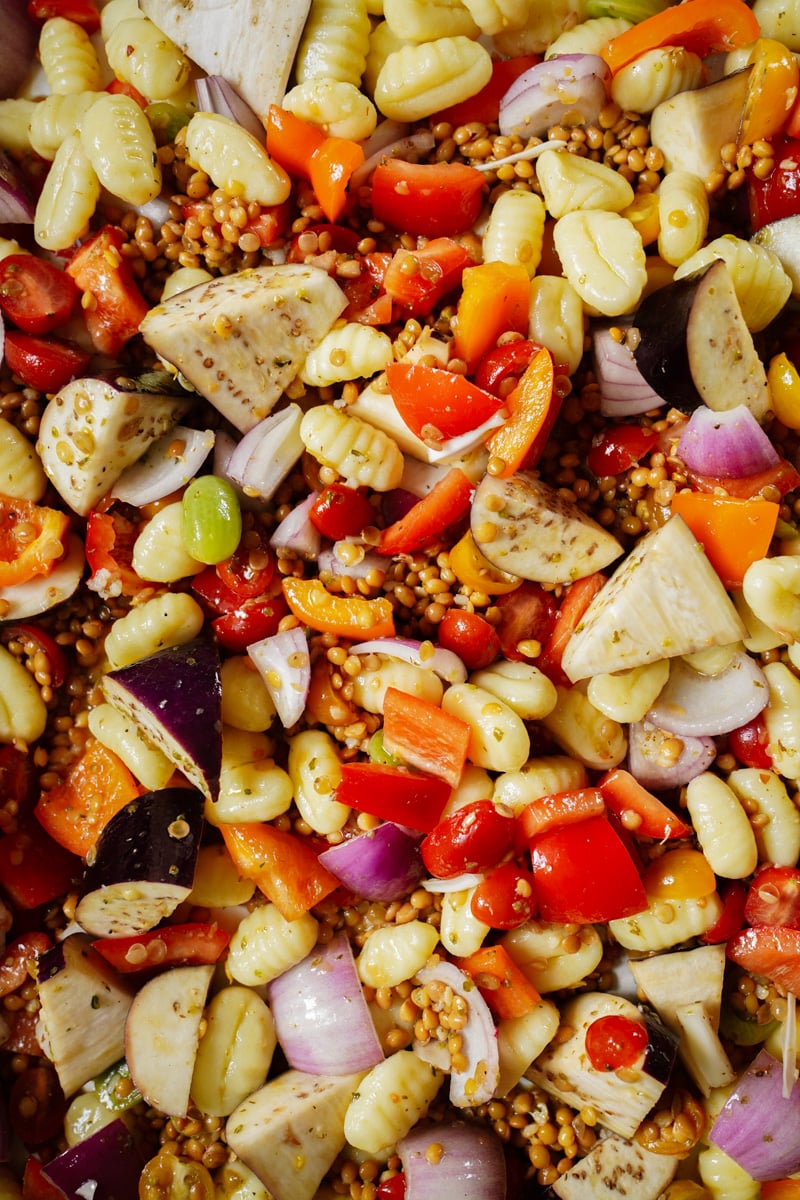
Frequently Asked Questions
No! This is a diet that doesn’t require you to buy anything fancy or crazy. Again, it’s a lifestyle shift. Instead of buying processed foods or red meats, you’re just swapping them in your grocery carts for fresh produce and lean protein. If you’re buying produce that’s in season, it may even be cheaper than your current diet.
Absolutely! This diet is very conducive to those who eat plant-based foods because it’s loaded with plants and plant-based proteins such as nuts and legumes.
There is no perfect answer to this, and I’m not a medical professional. Every person is different, and it’s entirely dependent on how much of a shift you make in your diet and lifestyle.
Yes, moderate alcohol consumption, particularly red wine, is often considered part of the traditional Mediterranean Diet. This is because there are a lot of studies that show drinking red wine with meals can contribute heart-healthy benefits due to the antioxidants in it.











